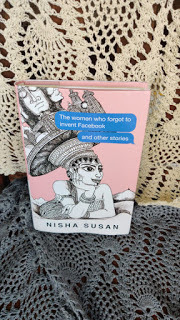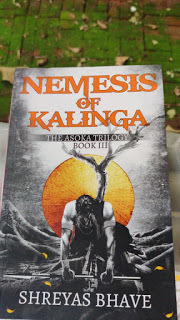Dibyajyoti Sarma's Blog, page 10
June 23, 2021
My rejoinder to the following review// Because poem appea...
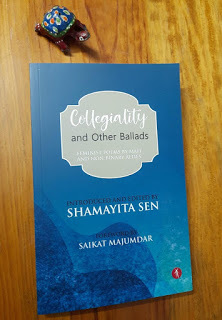
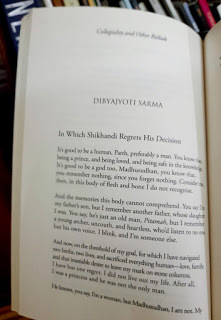
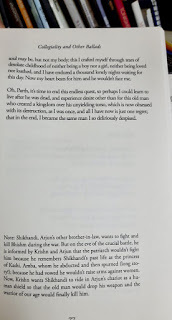 My rejoinder to the following review// Because poem appears in the book///
My rejoinder to the following review// Because poem appears in the book/// I am glad the review exists. No sarcasm. We do rarely see ‘criticism’ in Indian English poetry, so any kind of criticism is welcome. But (and I don’t want to use the word bias), the piece reeks of righteous anger — anger at the perceived wrong done to women and feminism by doing a book of poems written exclusively by people who don’t identify as woman. But this is the premise of the very book. Perhaps the book is not for you, but every book has a right to exist.
To condemn the book just because it purportedly collects ‘feminist poems’ by ‘male poets’ is resorting to essentialism.
Granted the book has its issues. To be honest, I don’t like the title. If I were involved in the book, I’d have made different choices. But it’s a personal opinion. Dismissing the poems just because they are on ‘women’s issues’ (sorry, couldn’t think of an appropriate word) is a rushed judgement.
Another accusation against the book is its crimes of ‘voice appropriation’. It’s a sensitive subject that demands a nuanced reading (I know, I did my PhD on the subject, how mainstream authors appropriate minority voices in Indian fiction in English). Personally, I don’t support appropriating someone’s voice willy-nilly, but at time, it can be a stylistic choice, because if you write it from the male POV, it may sound condescending. (But must you, as a man, tell a woman’s story? That needs a large discussion. But depending on the situation, my answer would be yes, simply because the stories must be told, the voices must be heard, and often, a woman may not be able to tell her own story. But it must be done with empathy and compassion. The onus is on the writer.)
Now, a point about the comment on my poem. The reviewer writes, “The choice of footnote gives away the gender bias in Sarma’s ‘In Which We Eat’, a poem about Draupadi requiring to feed more mouths than there is food. After exhorting Draupadi/ Yagnaseni to eat the last morsel, the poem inexplicably ends by offering the last morsel to Jayant Mahapatra instead. The footnote explains Draupadi’s predicament but gives no reference for Mahapatra or the fisherman that Mahapatra will feed. Real men don’t need footnotes.”
I am so happy that the review read the poem. To be honest, I did not write it to be a feminist poem — far from it. It was talking about hunger, and Draupadi was a take-off point. The third section of the poem invokes a whole host of people, both men and women.
As to the lack of reference to the fisherman that Mahapatra will feed, it’s missing because it refers to Mahapatra’s poem ‘Hunger’, which has been a staple of school and college courses and I assumed everyone who reads poetry in English in India will get it. Perhaps its my male bias, after all, or my English Lit bias. I will make sure to include it the next time I publish the poem.
(I am still not explaining the reference. Please read Mahapatra’s poem!)
November 30, 2020
Celebrating the third anniversary of Red River.Three year...
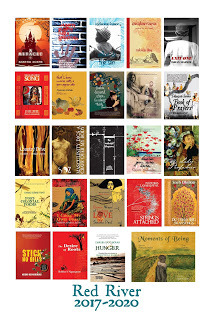
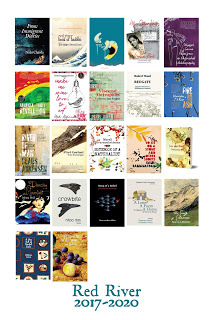
Celebrating the third anniversary of Red River.
Three years and 47 titles and counting.
Thank you for your support — Abhimanyu Kumar, Nabina Das, Ishan Marvel, Jhilmil Breckenridge, Namrata Pathak, Amit Ranjan, Paresh Tiwari, Dibyajyoti Sarma, Sukrita Paul Kumar, Achala Grover, Gayatri Majumdar, Kamal Kumar Tanti, Shalim M Hussain, Babitha Marina Justin, Strings Attached, Madhu Raghavendra, Subhash Malik, Anjali Capila, Nishi Chawla, Sananta Tanty, Uttaran Das Gupta, Harvinder Kaur, Claus Ankersen, Soni Somarajan, Murali Sivaramakrishna, Mona Bedi, Nitoo Das, Nandini Varma, Shobhana Kumar, Rati Agnihotri
November 28, 2020
The book this week, handpicked by Dibyajyoti Sarma, is Q...
The book this week, handpicked by Dibyajyoti Sarma, is Qurratulain Hyder’s semi-autobiographical novel in four volumes, Kar-e-Jahan Daraz Hai, translated from the Urdu by Irfan Ahmad
Published by Vani Prakashan
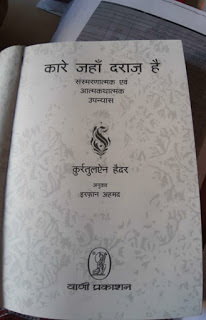
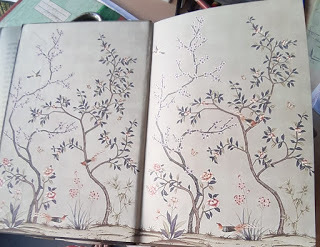
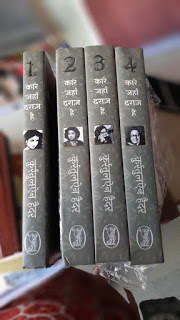
The book this week, handpicked by Dibyajyoti Sarma,...
The book this week, handpicked by Dibyajyoti Sarma, is Qurratulain Hyder’s semi-autobiographical novel in four volumes, Kar-e-Jahan Daraz Hai, translated from the Urdu by Irfan Ahmad
Published by Vani Prakashan



November 22, 2020
The book this week, handpicked by Dibyajyoti Sarma, is Sa...
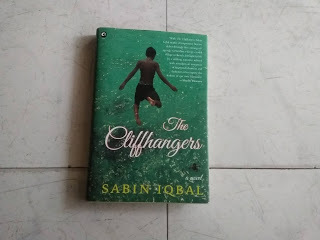
The book this week, handpicked by Dibyajyoti Sarma, is Sabin Iqbal’s The Cliffhangers, story of a group of teenage boys in Kerala, shortlisted for the Tata Literature Live! first book award
Published by Aleph Book Company, and printed at Parksons Graphics
November 14, 2020
The book this week, handpicked by Dibyajyoti Sarma, is a...

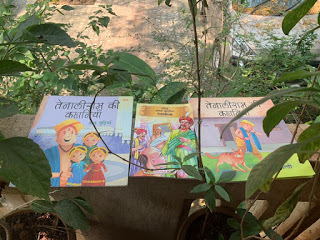
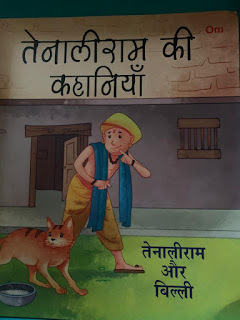
The book this week, handpicked by Dibyajyoti Sarma, is a series of children’s stories featuring the exploits of the fabled Tenali Rama, to celebrate Children’s Day on 14 November
Published by Om Kids, an imprint of Om Books, and Maple Kids
The book this week, handpicked by Dibyajyoti Sarma,...



The book this week, handpicked by Dibyajyoti Sarma, is a series of children’s stories featuring the exploits of the fabled Tenali Rama, to celebrate Children’s Day on 14 November
Published by Om Kids, an imprint of Om Books, and Maple Kids

